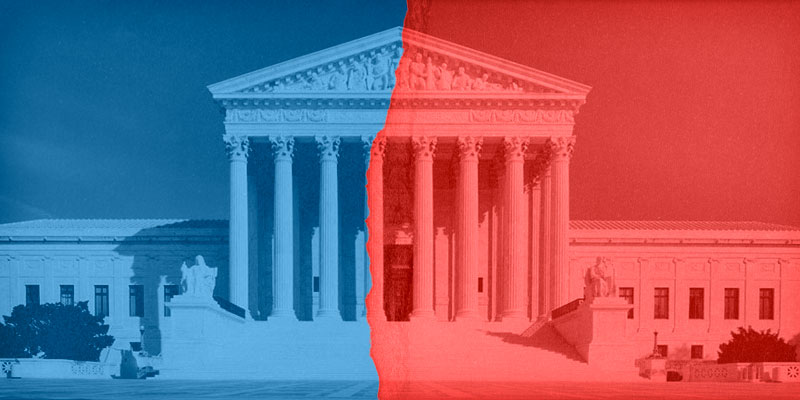We celebrate America on the Fourth of July. But do Americans today still respect each other enough to constitute a functioning country? Responses to the Supreme Court’s decision to overturn Roe v. Wade illustrate this animosity and the challenge we face maintaining liberal democracy.
The Supreme Court did not outlaw abortion in Dobbs v. Jackson, but rather returned it to the states and their legislatures. State can protect abortion in their constitutions. America will now address abortion through federalism.
America faces bitter partisan division. Reactions to Dobbs reflect sentiments revealed in polls. A Pew Research poll found that 70% of Democrats and 62% of Republicans highly engaged in politics said that the other party makes them “afraid.” A Yahoo News/YouGov poll found that 25% of Republicans and 23% of Democrats chose “a threat to America” as the phrase that “best describes people on the other side of the political aisle from you.”
A nation is a cooperative venture. Defending its citizens and territory is any nation’s most fundamental task. National defense involves shared sacrifice for a common goal. Who will sacrifice for the freedom of persons they despise? Contributions to the common good must flow from mutual respect and goodwill. Yoram Hazony nicely describes how citizens should feel toward each other in The Virtue of Nationalism: we suffer others’ hardships as our own and share in their joy and happiness.
Contempt toward other citizens threatens America as a liberal democracy. Liberalism here refers to the classical sense and not leftist politics; liberalism’s core values are the moral equality of all and respect and tolerance for others. Democracy involves shared governance and one person, one vote.
Our discourse today displays neither tolerance nor respect. When Blue and Red America see each other as immoral, they deny moral equality. Neither side will likely let persons they fear as threats govern after an election.
Political liberalism and the rule of law enabled peaceful coexistence and cooperation. These institutions established ordered liberty and domestic peace, unleashing the Great Enrichment and a thirty thousand percent increase in standards of living.
Peaceful coexistence requires compromise and mutual accommodation. Abortion’s two seemingly irreconcilable views — a woman’s right to choose and the defense of life – provide a formidable challenge. And a nontrivial number of Americans seemingly view violence as justified to either end mass murder or defend bodily integrity.
Is our country destined to be torn apart? Not necessarily. Decades of religious warfare across Europe weighed heavily on America’s founders. The First Amendment’s separation of church and state was their compromise, enacted not because religion as unimportant, but because people would fight over religion.
The founders’ compromise let everyone could worship as they chose in exchange for not forcing their views on others. It worked because Americans decided that religious freedom was more important than dictating to others.
Middle ground almost always exists once we look carefully. Some arises from the costs of enforcing laws. If some states severely restrict abortion, “medical tourism” to states where it remains legal will be possible; Justice Kavanaugh’s concurring opinion in Dobbs warned that state travel restrictions would be unconstitutional. Just how will opponents go to enforce restrictions?
Potential for compromise also emerges when people carefully scrutinize their beliefs. Do opponents view abortion as a surgical procedure? What exactly does a meaningful right to choose for women entail? Might making birth control and “abortion” pills widely available offer a compromise?
Returning abortion to legislatures means that we, through our elected representatives, must grapple with these questions. Federalism also enables compromise. Nationally Americans are evenly split on abortion, but enormous variation exists across states. When states decide policy, Alabama and New York can set policies reflecting the differing views in each state.
Demanding total submission to your views basically initiates civil war when opponents prefer fighting to submission. Recognizing our moral equality is crucial here. If Blue and Red America insist on the right to force their views on others, we may choose conflict over cooperation.
Daniel Sutter is the Charles G. Koch Professor of Economics with the Manuel H. Johnson Center for Political Economy at Troy University and host of Econversations on TrojanVision. The opinions expressed in this column are the author’s and do not necessarily reflect the views of Troy University.













